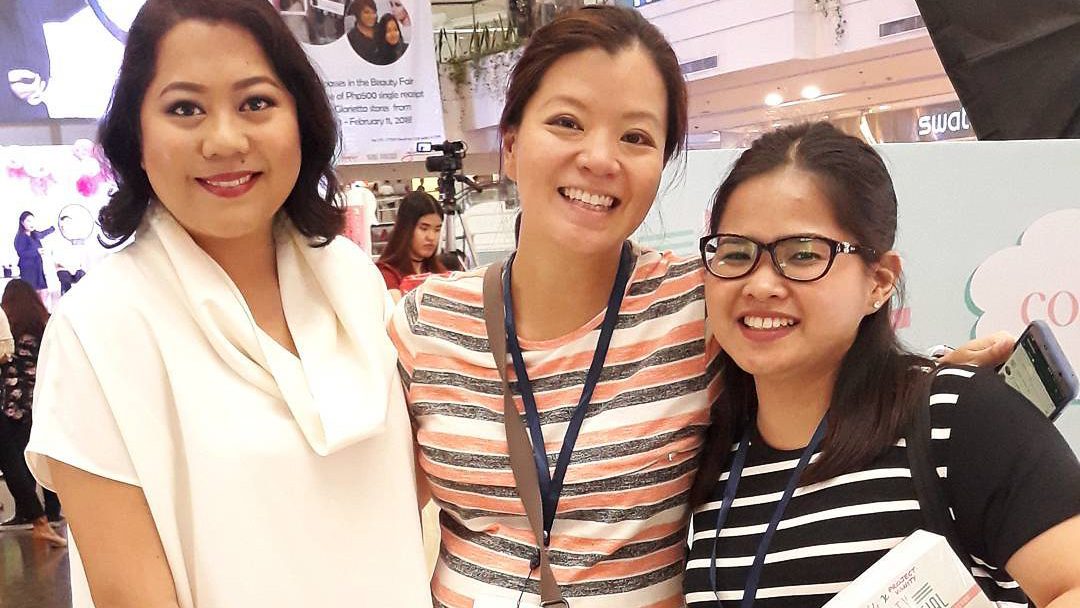SUMMARY
This is AI generated summarization, which may have errors. For context, always refer to the full article.

MANILA, Philippines – Belle de Jour (BDJ) planner founder Darlyn Ty has spent the last 12 years helping women achieve their dreams, all while following her own.
Darlyn was working for a publishing company in 2006 when her friends convinced her to sell copies of her self-made planner – one she had used the year before to help her achieve her own goals. Back then, she would go to the printers before her 10 am to 5 pm job, receive copies at 2 am, and meet around 200 buyers over the course of 3 hours at coffee shops.
Today, BDJ is her full-time job – the company now designs planners for other brands through Viviamo Inc. Over the years her fanbase has grown and she is dedicated to ensuring that the community who supports her can expecte a new BDJ planner regularly. “I remember the emails that I would receive from the girls who used to planner, the feedback that ‘This is the first planner that I’ve used from end-to-end.’ It was very fulfilling for me, because wow, the product that I designed or worked on is actually making a difference on their day-to-day lives, so for me that was a big thing,” she told Rappler.
When we spoke to her over the phone, she was on a less hectic schedule – she is, after all, 36 weeks pregnant, and just hoping to make it to BDJ’s Women’s Summit on Sunday, March 11, before giving birth to her second child. Otherwise, she’d be zipping off to meetings with clients, brand collaborators, and with her team.
Regardless of what they’re working on, whether it’s the Women’s Summit, or their recently concluded “beauty bootcamp,” Darlyn and her team focus on empowering women – Filipino women in particular.
“I think the challenge in the Philippine setting for women empowerment is that it’s not the traditional women empowerment you see in the US or other Western countries, because the Philippines has a very matriarchal society, so we actually put women in high regard,” she said.
While things aren’t quite as progressive in other parts of the country, women in more urban areas of the Philippines are given more opportunities, continued Darlyn, citing that there is a higher percentage of women studying in universities than men. The conversation on women empowerment, then, must tear down outdated perceptions or expectations of women.
For example, Darlyn points out that single women living with their families are still expected to do household chores even though they’re contributing to the household income, just like their brothers. Meanwhile, the sons and brothers of the household aren’t expected to help out around the house. Married women, on the other hand, are always expected to take care of the kids – to the point that it’s the mom who has to take a leave from her stable job to take care of a couple’s sick child, even though her husband might have a freer schedule and able to take on the role himself.
These gender roles aren’t just enforced by society, but by how we Filipinas see ourselves too – there are core roles that we must fulfill, no matter how many other roles we take on.
“So the conversation there is about being able to balance it and being able to build boundaries for women empowerment for Filipinas. It’s not about educating them to be able to do more, because women can do more already, but just about how do you help when create [or] draw their own boundaries and at the same time set out realistic expectations for themselves,” said Darlyn.
To do this, it’s important to bring men into the conversation too.
“I’m very careful whenever we talk about women empowerment, it’s definitely not our objective to be able put them down. I think the only way for Filipino men to be able to participate more or to bring them in as part of the conversation is to also allow them to expand their identities. That its not just this macho perception that ‘If your a guy you can only do this, you can only do that,’” said Darlyn.
She continued: “So the women empowerment that we talked about is really empowerment for everyone it’s just that our [BDJ’s] followers are mostly women, so naturally we talk mostly about women empowerment because they’re our community, but if you think about all of our messages, it actually speaks across genders.”
Now that Darlyn has achieved her own dreams, she’s out to help other women out in a more direct way. BDJ, through their membership program, mentors their “Bellas” and helps them find the balance between their roles at home and achieving their goals without compromising. – Rappler.com
Add a comment
How does this make you feel?
![[In This Economy] A counter-rejoinder in the economic charter change debate](https://www.rappler.com/tachyon/2024/04/TL-counter-rejoinder-apr-20-2024.jpg?resize=257%2C257&crop=267px%2C0px%2C720px%2C720px)
![[Vantage Point] Joey Salceda says 8% GDP growth attainable](https://www.rappler.com/tachyon/2024/04/tl-salceda-gdp-growth-04192024.jpg?resize=257%2C257&crop_strategy=attention)
![[ANALYSIS] A new advocacy in race to financial literacy](https://www.rappler.com/tachyon/2024/04/advocacy-race-financial-literacy-April-19-2024.jpg?resize=257%2C257&crop_strategy=attention)


There are no comments yet. Add your comment to start the conversation.